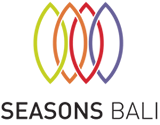How do I Stop Enabling an Addict?
When we care about someone, we want to help them; we don’t want them to suffer. Caring for someone who is addicted to a substance or behaviour is complicated. We see them suffering in many ways, but it is challenging to figure out how to help alleviate this suffering without enabling addictive behaviour. We can begin by recognising a fundamental difference between helping and enabling. We can broadly say that helping is doing something for the addict that they could not do for themselves even if they were clean. When you do something for an addict that they could do for themselves if they were clean, you are making it easier for them to remain addicted. Let’s examine the question further and learn how to stop enabling an addict.

Don’t Cover
Addicts will get themselves in trouble. People who care about them will often try to help by making excuses for them or covering for them. That is helping them continue to practice their addiction. Do not shield them. Let the addict experience all the consequences of their actions.

Don’t Lend Money
Just like anyone else, addicts have legitimate day-to-day financial needs. But if you lend them money for rent, that just frees up space in their budget for addiction. When you give or lend money to an addict, you might as well just give them drugs or alcohol. Let them make their own choice and be prepared for them to choose wrong. You have to let them decide when the consequences of their actions are no longer acceptable. That will be difficult! Remember your support group.

Let Law Enforcement Do Their Job
As hard as it is to stop covering for an addict with their employer or stop lending them money, it is even harder not to shield them from law enforcement. As addiction progresses, things get worse, sometimes with an arrest, or even a conviction. At that time, your first reaction may be to do anything you can to help. This can only lead to lessening the consequences and make it easier for their addiction to continue. It is not pretty, but sometimes an arrest is what it takes for the addict to realise that it is time to get clean.

Be Prepared To Give Tough Love
When you are used to cleaning up after an addict, you feel like you are helping. You see them suffering, and you take action to protect them from the most visible consequences of their actions. But ultimately, this is just allowing them to continue on the road of self-destruction, and the subtle effects may be worse than the ones that you notice.
You need to get out of the way and let consequences do their work and help the person that you care about to realise that they need to make a change. The tricky part is that you cannot be sure when (or even if) that will work. You will see them suffer from the things you have been protecting them from. That can be very painful. But the best, most loving thing you can do is stop making it easier for them to be an addict.

Let Them Know You Are Making A Change
You are changing the way you interact with the addict to stop supporting their addiction. They can benefit from this change more if they understand it clearly. Addicts are very good at making up stories that support their continuing addiction. For instance, “he is not helping me anymore because he does not love me.” If you let them know that you care about them, and you believe they deserve to be happy and then explain what you are doing and why this can help them realise that they have a severe problem and the “help” you will now withhold is not part of the solution. Let them know you care about them, but you don’t want to support their addiction.

Don’t Go At It Alone.
When you are used to enabling an addict, giving them the freedom to fail is painful. You are not alone. There are support groups, such as Al-Anon for families of alcoholics and Nar-Anon for families of addicts. These support groups can be extremely beneficial since you can talk to other people and explore and address the intense feelings you will experience. By attending a support group, you can gain knowledge on the disease of addiction and learn the tools you need to help break the enabling pattern. There is no reason to go at it alone. In another sense, you may want to avoid “going alone” when communicating with the addict. If you can convince other people who are enabling the addict into joining you, your decision will be more effective. Therefore, you should avoid talking to the addict one-on-one. Addicts can be very persuasive, and there is strength in numbers.

Encourage Them To Seek Treatment
By definition, an addict is a person who has a harmful habit that is beyond their control. To get clean and live a healthy, happy life, an addict must seek help and do the hard work of recovery. A good treatment program with skilled therapists using an evidenced-based approach relying on proven techniques like talk therapy and education makes the job easier and increases the chances that the addict will be able to stay on the road to recovery.





